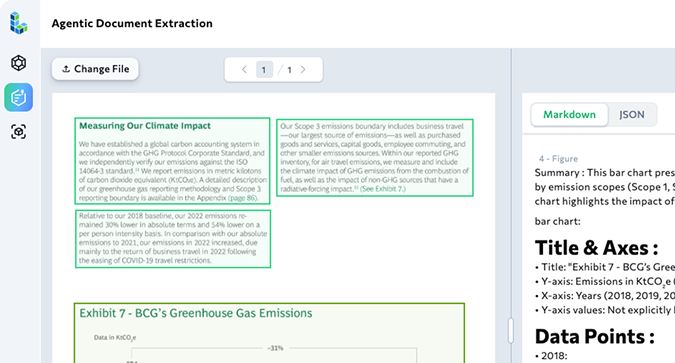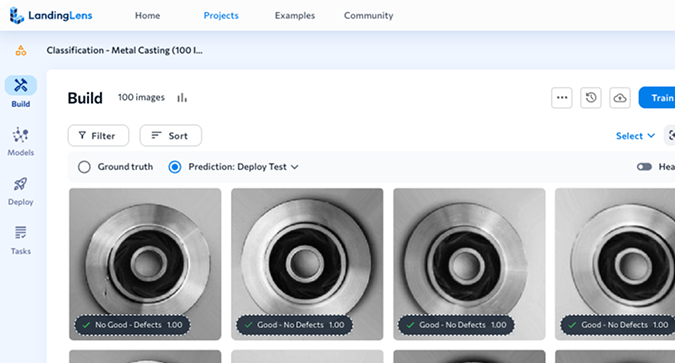Deep Learning, Education, and Real World AI
Lex: The following is a conversation with Andrew Ng, one of the most impactful educators, researchers, innovators, and leaders in artificial intelligence and technology space in general. He co-founded Coursera and Google Brain. Launched Deep Learning AI, LandingAI, and the AI Fund, and was the chief scientist at Baidu. As a Stanford professor, and with Coursera and Deep Learning, AI he has helped educate and inspire millions of students, including me. This is the artificial intelligence podcast. If you enjoy it, subscribe on YouTube. Give five stars on Apple podcasts, support on Patreon, or simply connect with me on Twitter at Lex Fridman, spelled F-R-I-D-M-A-N. As usual, I’ll do one or two minutes of ads now and never any ads in the middle that can break the flow of the conversation. I hope that works for you and doesn’t hurt the listening experience.
Lex: This show is presented by Cash App. The number one finance app in the app store. When you get it use code LexPodcast. Cash App lets you send money to friends, buy Bitcoin, and invest in the stock market with as little as $1. Broker services are provided by Cash App Investing, a subsidiary of Square a member SIPC. Since Cash App allows you to buy Bitcoin, let me mention that cryptocurrency in the context of the history of money is fascinating. I recommend a cent of money as a great book on this history. Debits and credits on ledgers started over 30,000 years ago. The US dollar has created over 200 years ago, and Bitcoin, the first decentralized cryptocurrency released just over 10 years ago. So given that history, cryptocurrency still very much in its early days of development, but it’s still aiming to and just might redefine the nature of money.
Lex: So again, if you get Cash App from the app store or Google Play and use the code LexPodcast, you’ll get $10 and Cash App will also donate $10 to FIRST, one of my favorite organizations that is helping to advance robotics and STEM education for young people around the world. And now here’s my conversation with Andrew Ng.
Lex: The courses you taught on machine learning at Stanford and later on Coursera, that you co-founded have educated and inspired millions of people. So let me ask you what people or ideas inspired you to get into computer science and machine learning when you were young? When did you first fall in love with the field as another way to put it?
Andrew Ng: Growing up in Hong Kong and Singapore, I started learning to code when I was five or six years old. At that time I was learning the BASIC programming language and they would take these folks and they’ll tell you type this program into your computer. So I typed out programs on my computer and as the result of all the typing, I would get to play these very simple, shoot them up games that I had implemented on my little computer. So I thought it was fascinating as a young kid that I could write this code. I was really just copying code from a book into my computer to then play these cool little video games. Another moment for me was when I was a teenager and my father was a doctor was reading about expert systems and about neural networks. So he got me to read some of these books and I thought it was really cool that you could write a computer that started to exhibit intelligence.
Andrew Ng: Then I remember doing an internship while I was in high school, this is in Singapore, where I remember doing a lot of photocopying and office assistance. And the highlight of my job was when I got to use this shredder. So the teenager, me, remember thinking, boy, this is a lot of photocopying. If only you could write software, build a robot, something to automate this. Maybe I could do something else. So I think a lot of my work since then has centered on the theme of automation, even the way I think about machine learning today, we’re very good at writing, learning algorithms that can automate things that people can do, or even launching the first MOOCs, massive open online courses that later that Coursera I was trying to automate what could be automatable in how I was teaching on campus.
Lex: The process of education tried to automate parts of that to have more impact from a single teacher, single educator.
Andrew Ng: Yeah. I felt teaching at Stanford… I was teaching machine learning to about 400 students year at the time. And I found myself filming the exact same video every year, telling the same jokes in the same room. And I thought, why am I doing this? Why don’t we just take last year’s video? And then I can spend my time building a deeper relationship with students. So that process of thinking through how to do that, that led to the first MOOCs that we launched.
Lex: And then you have more time to write new jokes. Are there favorite memories from your early days of Stanford teaching thousands of people in person and then millions of people online?
Andrew Ng: Teaching online… What not many people know was that a lot of those videos were shot between the hours of 10:00 PM and 3:00 AM. Launching the first one was at Stanford, we had already announced the course, but a hundred thousand people had signed up. We just started to write a code and we had not yet actually filmed the videos. So we had a lot of pressure. A hundred thousand people waiting for us to produce the content. So many Fridays, Saturdays, I would go out, have dinner with my friends, and then I would think, okay, do you want to go home now? Or do you want to go to the office to film videos?
Andrew Ng: And the thought of being able to help a hundred thousand people potentially learn machine learning, fortunately, that made me think, okay, I’m going to go to my office, go to my tiny live recording studio. I would adjust my Logitech webcam, adjust my Wacom tablet, make sure my lapel mic was on. And then I would start recording often until 2:00 AM or 3:00 AM. I think, unfortunately, it doesn’t show that it was recorded that late at night, but it was really inspiring the thought that we could create content to help so many people learn about machine learning.
Lex: How did that feel? The fact that you’re probably somewhat alone, maybe a couple of friends recording with a Logitech webcam and kind of going home alone at 1:00 or 2:00 AM at night and knowing that that’s going to reach sort of thousands of people, eventually millions of people. What’s that feeling like? Is there a feeling of just satisfaction of pushing through?
Andrew Ng: I think it was humbling. And I wasn’t thinking about what I was viewing. I think one thing we have that I’m proud to say we cut right from the early days was I told my whole team back then that the number one priority is to do what’s best for learners, do what’s best for students. And so when I went to the recording studio, the only thing on my mind was what can I say? How can I design my slides, what do I need to draw right to make these concepts as clear as possible for learners? I’ve seen sometimes instructors is tempting to, hey, let’s talk about my work. Maybe if I teach you about my research, someone will cite my papers a couple more times. And I think one thing we got right is launch the first few MOOCs and later building Coursera was putting in place that bedrock principle of let’s just do what’s best for learners and forget about everything else. And I think that there’s a guiding principle turned out to be really important to the rise of the movement.
…


